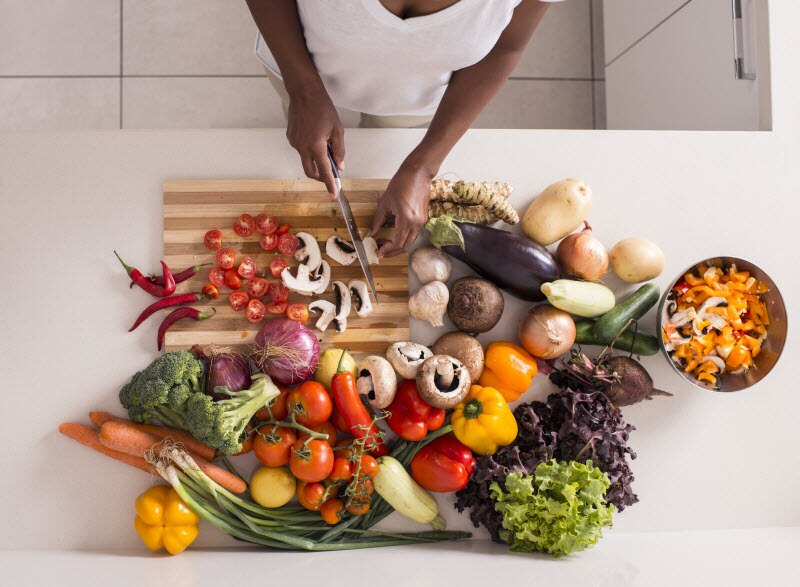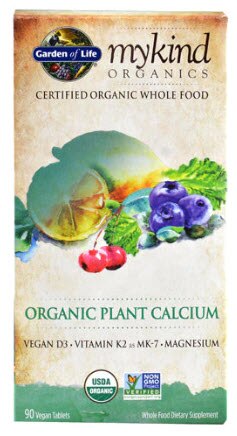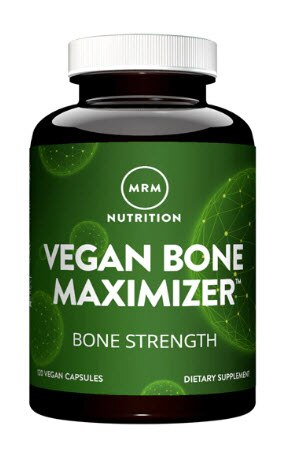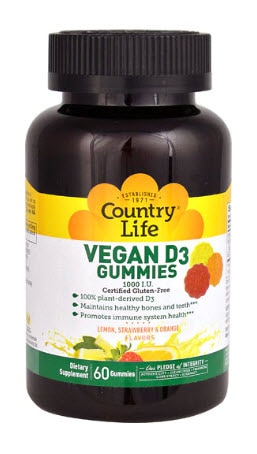Do you have strong, healthy bones? While your skeletal density may not be foremost in your mind right now, it does become increasingly important over time, especially if you want to prevent against fragile bones in old age, or osteoporosis, which afflicts almost 30 million Americans, with women being four times more likely to suffer from the disease than men.
Along with daily weight-bearing exercise, diet is vital when it comes to bone health, with calcium, vitamin D and other nutrients playing essential roles in building and maintaining skeletal mass. So, how can a plant-centered diet, bolstered by key supplements as needed, help to protect your skeletal integrity over time? Consider the following:
Plant foods reduce bone-threatening inflammation
A diet based on plants, rich in anti-inflammatory compounds like carotenoids, flavonoids, vitamins, minerals and fiber, is demonstrably effective in helping to ward off unhealthy inflammation, as measured by C-reactive protein (CRP), a marker used to diagnose acute and chronic inflammatory conditions.
In one study, patients followed either a vegan diet or the American Heart Association (AHA) diet which included poultry, fish and dairy products. After eight weeks, CRP levels were 32 percent lower among those in the vegan diet group when compared with the AHA group. Here is a run-down on the best and worst foods in terms of inflammation:
Pro-inflammatory foods:
- Red/processed/organ meats
- Foods high in salt and sugar
- Refined carbohydrates such as white bread/rice/pasta/processed snacks
- Sweetened beverages, including colas and sports drinks
- Heat-processed oils, especially canola oil
- Commercial confections, desserts, bakery items, frozen treats and any other sugar-packed items
- Alcohol, which can seriously compromise bone health over time.
Anti-inflammatory foods:
- Dark, leafy greens like kale, collard greens and spinach
- All brightly colored fresh and frozen veggies
- Fresh and frozen fruit of all types. Avoid pasteurized juices!
- Intact grains such as wheat berries, quinoa, oats, millet
- All types of natural, unsweetened tea, hot or iced
- Fermented foods, which may help increase microbiome diversity and decrease inflammatory proteins
Plant-fare offers safe protein levels
While we require ample protein for optimal bone health, less may be more. Excess animal protein, specifically, can cause a condition called subclinical acidosis that may result in bone and muscle loss. Fortunately, reducing your dietary acid load─easily accomplished with a whole food, plant-centered diet─can improve chronic acidosis, helping to preserve bone and muscle.
When you consume a wide variety of plant foods daily, even those with limiting amino acids, you are likely to obtain all the protein building blocks you need. To be certain you are well covered, you can determine your daily protein requirements, according to the United States Institute of Medicine:
- 120 lbs., aim for 44 grams of protein; athletes: 88 grams.
- 130 lbs., aim for 47 grams of protein; athletes: 94 grams.
- 140 lbs., aim for 51 grams of protein; athletes: 102 grams
- 150 lbs., aim for 55 grams of protein; athletes: 110 grams
- 160 lbs., aim for 58 grams of protein; athletes: 116 grams
- 170 lbs., aim for 62 grams of protein; athletes: 124 grams
- 180 lbs., aim for 65 grams of protein; athletes: 130 grams
- 190 lbs., aim for 69 grams of protein; athletes: 138 grams
- 200 lbs., aim for 72 grams of protein; athletes: 144 grams
Plant-based sources of complete (egg-level) protein include:
- Spirulina – 4 grams protein per tablespoon
- Tofu, tempeh, and edamame – 15 grams per cup
- Hemp seeds – 13 grams per 3 tablespoons
- Amaranth and quinoa – 9 grams per cup
- Chia seeds – 6 grams per 3 tablespoons
- Almonds – 6 grams per 1/4 cup (complete paired with beans/legumes)
- Lentils – 9 grams per 1/2 cup (complete paired with grains, nuts, seeds)
- Pumpkin seeds – 8 grams per 1/4 cup (complete paired with beans/legumes)
- Buckwheat – 11 grams per 1/2 cup (complete paired with beans, legumes, nuts, seeds)
Plant foods deliver bone-friendly nutrients
A healthy, plant-forward menu offers a varied array of vitamins, minerals, antioxidants, phytochemicals, functional water and more. This is a boon for your bones as they need a range of nutrients beyond calcium to remain strong, including vitamins B, C, D, K, magnesium and silica.
Vitamin D enhances intestinal absorption of calcium and phosphate, and too little in your diet can impair calcium absorption. Vitamin C is essential in the production of collagen in bone matrix. This water-soluble nutrient, which is only found in plant foods, also scavenges free radicals detrimental to bone health. Additionally, vitamin C supports protein collagen in the bones via collagen cross-linking.
Insufficient vitamin C, on the other hand, can lead to a loss in protein collagen from bone, which explains why low plasma C levels are linked with reduced skeletal integrity, especially among postmenopausal women. It is difficult to dispute the positive relationship between vitamin C and bone health, revealed by bone mineral density, fracture probability and bone turnover markers.
Researchers are continuing to explore ways in which our daily lifestyles affect our bones. Knowledge is power. Here’s to being sturdy on your pins for many decades to come!




